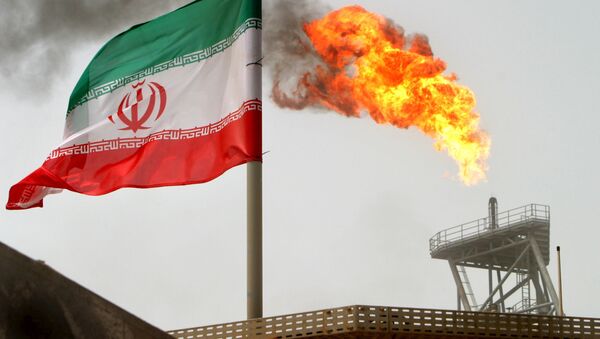Germany has reassured its businesses that the country will continue providing them with export and investment guarantees when working in Iran, despite Washington's sanctions, the Ministry of Economics said in a statement on August 6, 2018. The ministry also added that it will continue to discuss the possibilities of exemptions from sanctions with the US.
"Export guarantees and investment guarantees from the Federal Ministry of Economics are still available to companies," the statement said.
Earlier in the day, EU High Representative for Foreign Affairs Federica Mogherini and the foreign ministers of the UK, France and Germany said in a joint statement that beginning August 7, the updated EU Blocking Statute will come into effect in order to protect EU companies conducting business in Iran from extra-territorial US sanctions.
The statute will forbid such companies from complying with US demands, nullify any foreign court rulings against the firms and give them an opportunity to recover from penalties imposed on them.
READ MORE: EU to Block US Anti-Iran Sanctions Starting August 7 to Defend Business
In the joint statement, the heads of the foreign ministries of the UK, France and Germany, as well as the EU high representative for foreign affairs, also expressed their regret at the US decision to impose sanctions against Tehran and confirmed their adherence to the Iran nuclear deal.
Their statement came soon after the US Treasury Department announced that as of August 6, it will sanction any entity involved in buying or selling Iran's national currency, sovereign debt, gold, precious metals, aluminum, steel, coal, automobiles and certain types of software. The re-imposed US sanctions will affect any company doing business with Tehran, putting European firms at risk, as they have heavily invested in the country. For example, it jeopardizes Iran's deal to purchase planes from the Franco-Italian aircraft manufacturer ATR, as well as Airbus.
READ MORE: Pompeo Vows to 'Enforce' US Sanctions Against Iran — Reports
President Donald Trump announced on May 8 that the US was withdrawing from the Joint Comprehensive Plan of Action (JCPOA), an international agreement reached in 2015 between Iran, the United States, Russia, France, China, the UK, Germany and the EU. The deal was designed to prevent Iran from acquiring nuclear weapons and to ensure the peaceful nature of its nuclear program, lifting economic sanctions against the country in return.
Trump has consistently been a harsh opponent of the Iran deal, calling it "defective at its core." He demanded to "fix" it, threatening to withdraw the US from the deal and to re-impose economic sanctions. French President Emmanuel Macron and German Chancellor Angela Merkel, heads of two of the EU's leading countries, attempted to convince Trump to stick with the deal, but these efforts ultimately failed.


